Can Rahul Gandhi’s disqualification unite India’s fractured opposition?
As opposition parties rally in a rare, unified display against the ruling BJP over Gandhi’s expulsion, experts tell Namita Singh about the challenges awaiting Congress ahead of 2024 polls

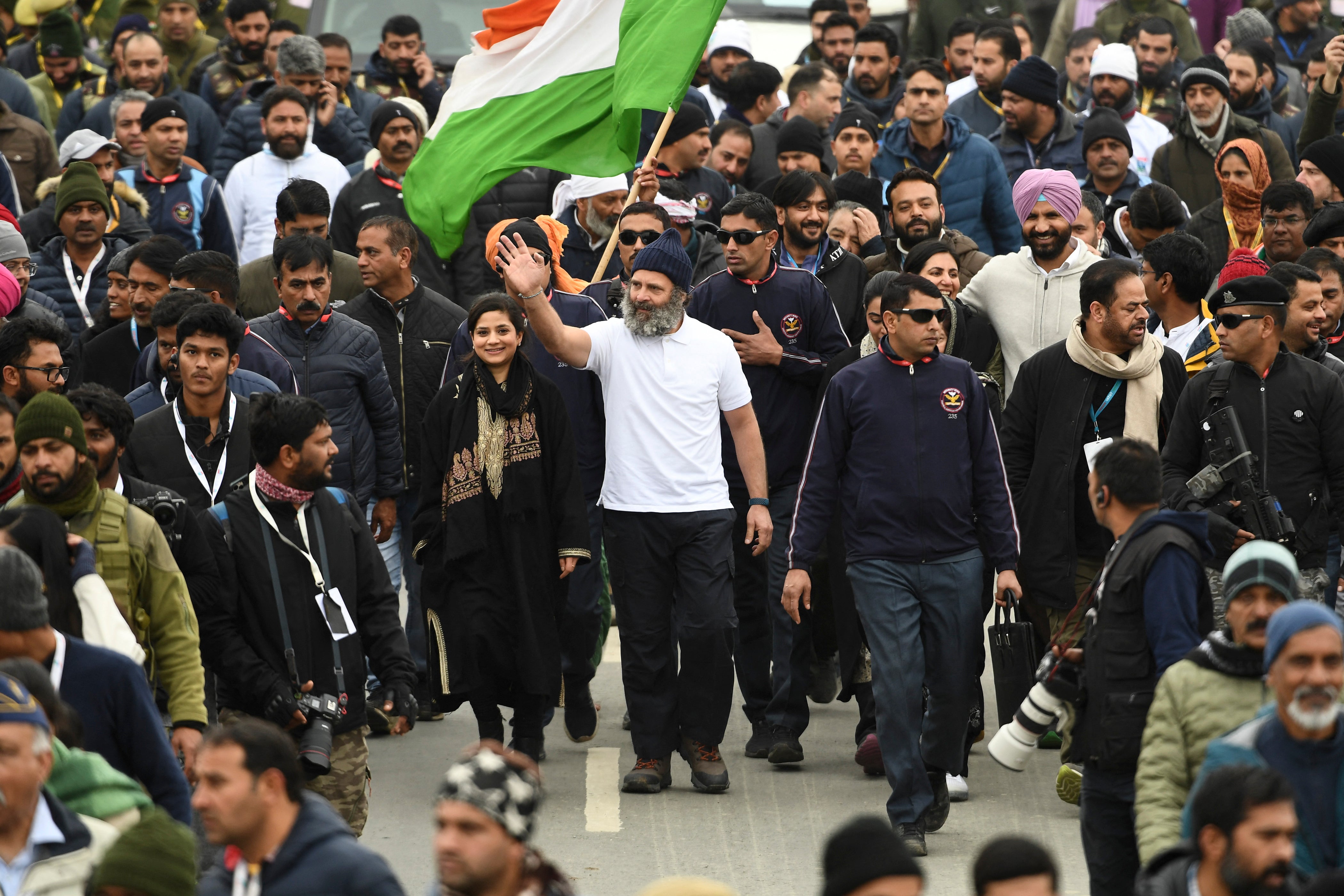
Scenes of chaos unfolded at the heart of India’s capital in March this year as police set up barricades and roughed up hundreds of political workers and lawmakers protesting the expulsion of Rahul Gandhi from India’s seat of democracy – its parliament.
Members of India’s largest opposition party, the Congress, gathered in front of Delhi’s iconic Red Fort to protest against the disqualification of Gandhi – an issue that has drawn rare and unanimous condemnation from a majority of the country’s opposition parties.
Slogans calling for protecting democracy rang out in the air as did chants against prime minister Narendra Modi. Demonstrators sat in front of several police vehicles carrying detained party workers.
“Jab jab Modi darta hai, police ko aagey karta hai (whenever Modi is afraid, he uses the police to crackdown on dissent),” shouted protesters as police used force to clear the way.
“This is not a fight for Rahul Gandhi. This is [a] fight for saving the Indian constitution,” says Congress worker Mathura Prasad Khushwaha, while trying to reason with the police as they tried to detain him. “It will affect not just me. It will affect you and your children. We are fighting for their rights too,” he says from the window of the police vehicle he was pushed into.
Gandhi, a fierce critic of prime minister Narendra Modi and touted as his main challenger in the 2024 polls, lost his seat in the lower house of parliament earlier in March, a day after a court found him guilty of defamation over his remarks about the “Modi” surname.Indian parliamentary rules say a member loses their seat if they are convicted of a crime and sentenced to two or more years in prison.
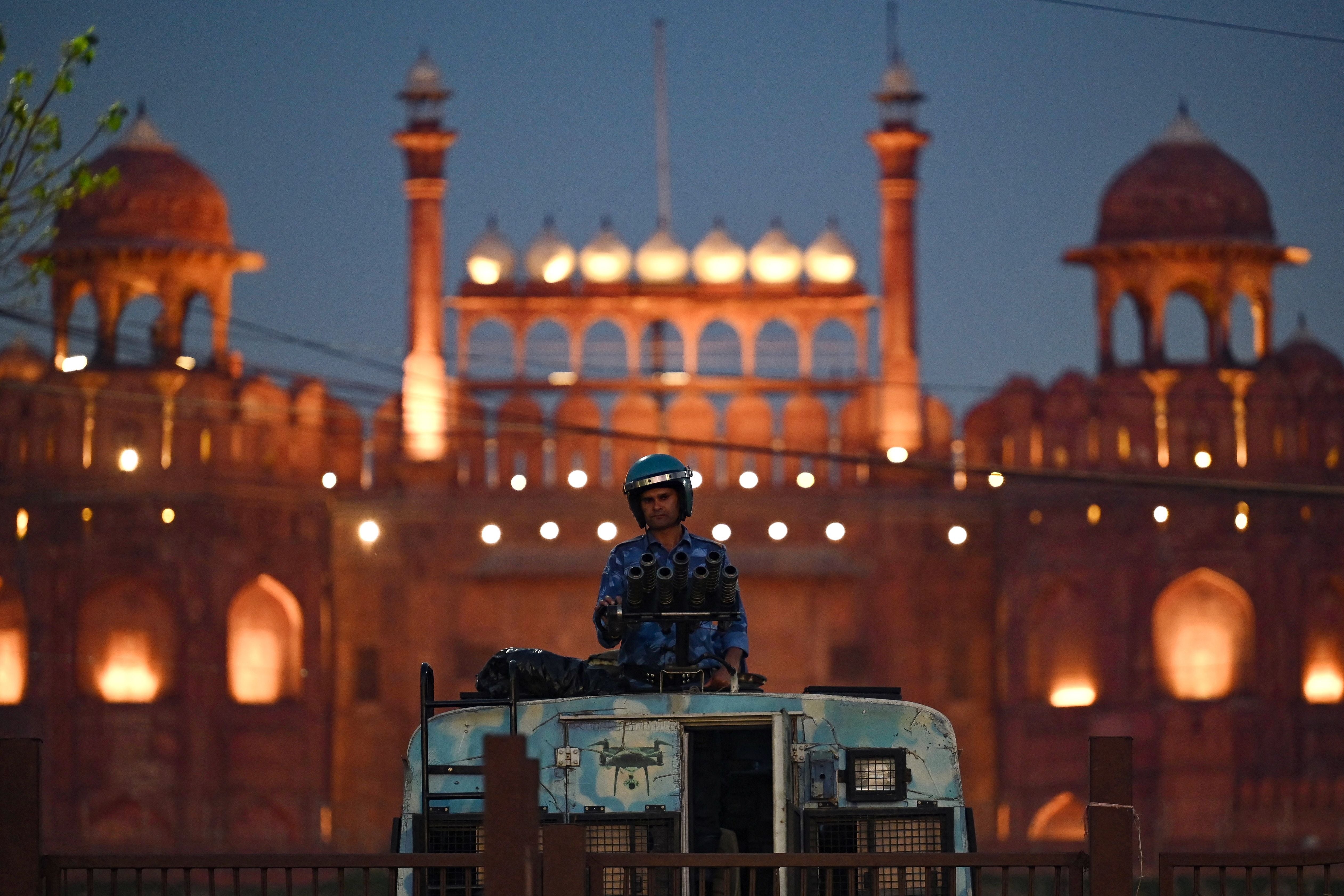
“Why all the thieves, be it Nirav Modi, Lalit Modi or Narendra Modi, have Modi in their names?” Gandhi had said during a rally in the southern Karnataka state in 2019 while referring to a business tycoon, a former Indian Premier League chief, and the Indian prime minister respectively.
Congress members, including party MPs, planned to hold torches in their hands and stage a march, but were denied permission and faced a subsequent police crackdown. “We don’t even have a right to protest here now?” asks Mukesh Rai, a Congress worker. “Is this not our country? Can we not ask questions from the government? Is it a democracy or an autocracy?”
As many as 96 people were detained, news agency Press Trust of India reported, citing deputy police commissioner Sagar Singh Kalsi.
All the detainees have been released, but anger over the issue remains.
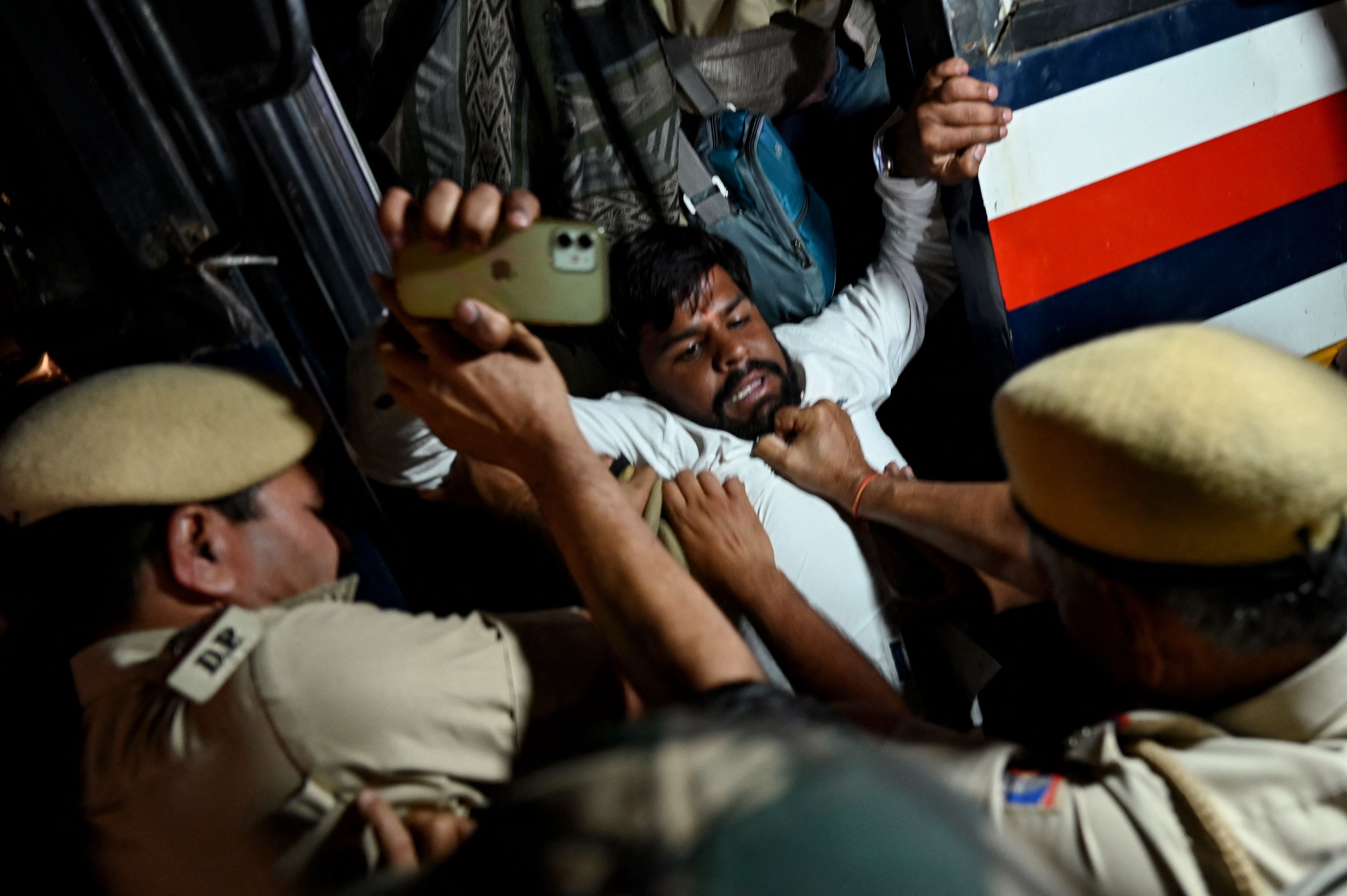
Gandhi’s expulsion has come after he and other opposition party leaders demanded a joint parliamentary committee investigation over a report on alleged stock-price manipulation and fraud running into billions of dollars by the Adani Group, run by billionaire tycoon Gautam Adani. Adani has, on multiple occasions, denied suggestions he benefits from his proximity to PM Modi.
The Adani Group has denied any wrongdoing.
“I think what this government has done by expelling Rahul Gandhi from parliament is to send out a signal to all opposition parties and that it can go to any extent to destroy and disable them,” says Apoorvanand, professor at the Hindi Department, Faculty of Arts, University of Delhi.
“I feel opposition parties have now realised that any pretext could be used to deprive them of all platforms,” he says, as he explains the impact of Gandhi’s expulsion on parliamentary politics.
“The parliament was one platform where you felt safe. But now that is also not available to parties.”
It is also a rare case of conviction in a criminal defamation case when persons who were defamed did not raise a case, says senior advocate, MP and former Congress member Kapil Sibal.
“I mean neither Nirav Modi, our prime minister Narendra Modi, Lalit Modi, they never went to court. So, who was defamed? Some fellow, who is an MLA and ex-minister. He moved a petition,” he tells The Independent.
The defamation case was filed by Purnesh Modi, a state-level lawmaker (Member of Legislative Assembly or MLA) of the ruling Bharatiya Janata Party (BJP) in Modi’s home state Gujarat. He claimed Gandhi’s comments had “defamed the entire Modi community”.
“The law requires that if a person is personally defamed then he has to move [to court],” explains Sibal. “[Purnesh Modi] said the Modi community was defamed. What is a Modi community? It belongs to different castes,” he says. “They are backwards in some states. They are forward in some states. So there is no such thing as a Modi community.”
“So they are targeting political opponents, that’s what they’re doing,” says Sibal.
The claim is not unsubstantiated.
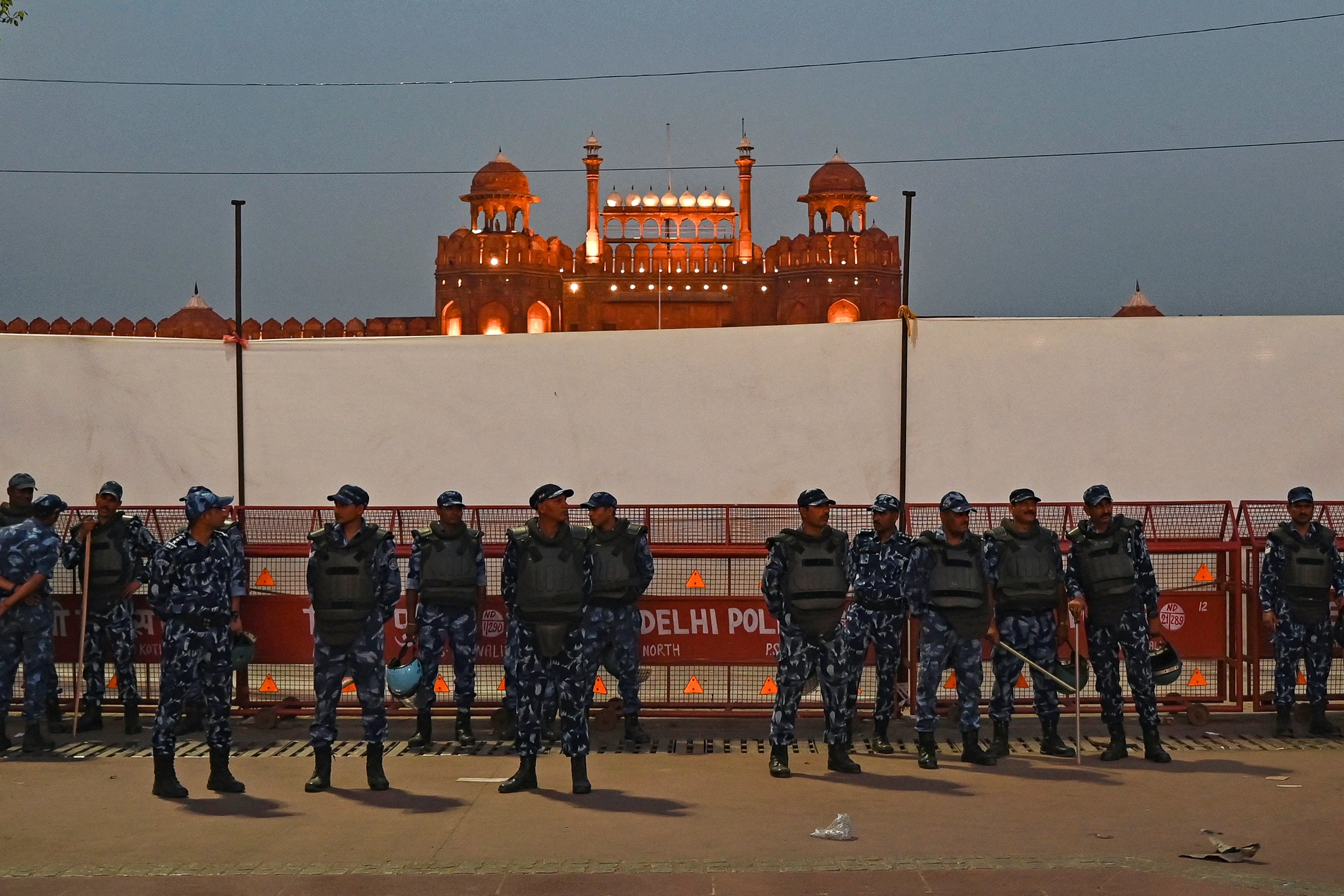
On 24 March, at least 14 political parties petitioned India’s Supreme Court against the alleged misuse of federal law enforcement agencies by the Modi government to target the opposition.
According to the plea, since Modi became prime minister in 2014, at least 124 leaders have been probed by central law enforcement agencies. Of these, about 118 or 95 per cent cases were brought against opposition leaders, it claimed.
However, despite the accusations of a “witch hunt” by the ruling order, the opposition has not always had a united front.
This was evident during the arrest of Delhi’s deputy chief minister Manish Sisodia by India’s nodal investigative agency, the Central Bureau of Investigation (CBI), in February.
While most parties condemned his arrest in connection with alleged irregularities in the now-scrapped liquor excise policy for Delhi, the Congress hailed the incarceration.
“The arrest of deputy chief minister Manish Sisodia by the CBI is a welcome step though chief minister Arvind Kejriwal should also be arrested as he was the mastermind of the corrupt deal,” Delhi Congress chief Anil Chaudhary said at the time.
The difficulty in keeping the opposition united was visible more recently, when a Congress ally in the country’s richest state of Maharashtra pushed back against Gandhi after he mocked British-era Hindutva idealogue Vinayak Damodar Savarkar, infamous for offering a clemency plea to the colonial government during India’s freedom struggle.
“My name is not Savarkar, my name is Gandhi and Gandhi does not offer an apology to anyone,” the unfazed Congress scion had said, apparently referring to his family members, including his great grandfather Jawaharlal Nehru who was independent India’s first prime minister.
The remark drew a sharp reaction from Uddhav Thackeray, a senior leader in Maharashtra, whose Hindu right-wing party the Shiv Sena, reveres Savarkar.
Thackeray had a fallout with Modi’s BJP, his long-term ally, and became the state’s chief minister in an alliance with the Congress and another regional party, the Nationalist Congress Party in 2019.
But after his own party leaders reneged against him for ignoring the core ideology of Hindu nationalism and split the Sena, Thackeray had to step down from his post.
“Veer [Brave] Savarkar is our god, and any disrespect towards him will not be tolerated,” pushed back Thackarey against Gandhi’s comments. “We are prepared to fight, but insulting our gods is not something we will tolerate.”
Political analysts and leaders of opposition parties argue that Congress will have to tread lightly to keep the opposition united and not put regional parties in a tight spot, for it needs them to successfully challenge the BJP.
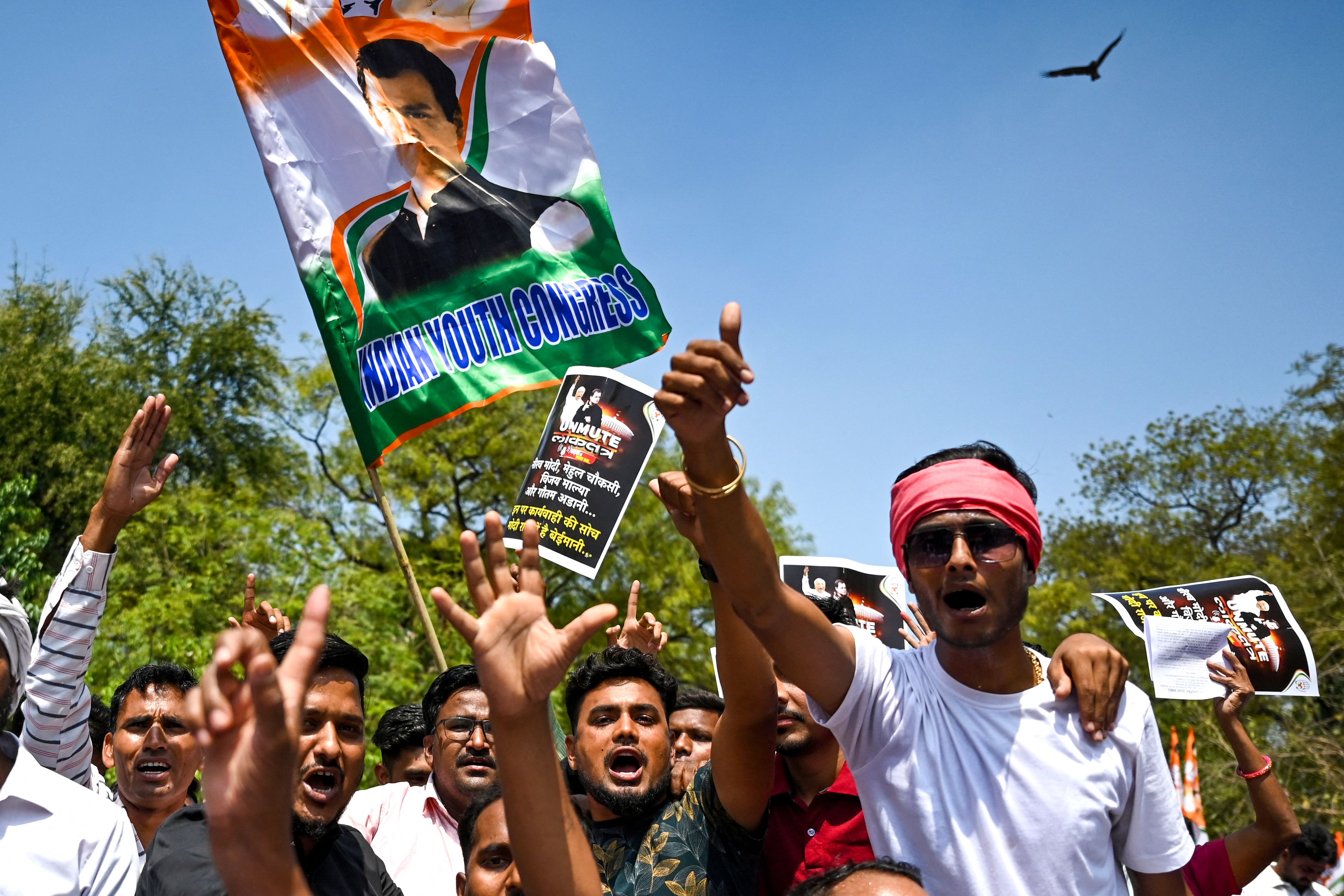
“You have to realise that this is a moment when you have a task to keep all political parties together. These political parties have their own history,” explains Professor Apoorvanand.
“And Shiv Sena has to keep securing its space in Maharashtra. It knows it can be cornered using Savarkar, so it will be forced to react.
“So, it’s for you as an ally to bring Shiv Sena out of that. And for that, you will have to again resist the temptation of sounding pure, smart and politically very correct because the task is to keep these forces together for a very long time, and they don’t know how to work together.”
Congress also needs to reposition itself in states where they are failing repeatedly and look to other parties to defeat the BJP, says Sushmita Dev, member of the parliament’s upper house from the opposition Trinamool Congress. Parties that have shown ability to defeat BJP must be recognised by Congress, Dev says, and raises concerns about their inability to convert vote share to seats.
“Congress has approximately 20 per cent vote share. But what is worrying is their strike rate,” she tells The Independent.
In the 2019 national elections, Congress fielded 421 candidates across the country, but only 52 were elected from 18 states and union territories, reported NDTV. The party that once had its footprint in the entire country did not win a single seat in 17 states and union territories, the news channel pointed out.
Out of this, there were 192 seats where Congress directly contested the BJP, according to India Today. Of these, BJP gained 176 seats. “That’s what is keeping the BJP in power,” says Dev.
“So, Congress has to concentrate on winning in areas where they are in a direct fight with the BJP,” she says, adding that the party has to allow in other parties that have “proved that they can repeatedly defeat BJP”.
“It’s going to take a lot of grace, a lot of sacrifice for Congress to do that.”
Gandhi’s sentencing just a year prior to the national elections is concerning for the Congress because if his conviction is not suspended or overturned by a higher court before the elections, he will not be able to contest the polls, reported LiveMint.
His hopes of returning to parliament and contesting national elections were dented further on 7 July, after he failed in his high court bid seeking suspension for his conviction.
Dismissing the plea, Justice Hemant Prachchhak said that an earlier lower court order refusing to grant a stay on Gandhi’s conviction was “just and legal”.
Noting that such stays are an exception, the court observed no injustice will be caused to Gandhi if the conviction is not put on hold, adding that the criminal appeal will be decided on its own merits and as expeditiously as possible.
“There is no need to interfere with the said order. Therefore, the application is dismissed,” he said.
While the Congress scion is expected to appeal the verdict at the country’s Supreme Court in New Delhi, experts believe thatthere also lies an opportunity for the party to prove that through Gandhi, they are not promoting dynasty politics, but fighting for the Constitution.
“I think that’s even better because that robs BJP of its propaganda that all Congress party wants to do is to force Rahul Gandhi as prime minister,” says Apoorvanand.
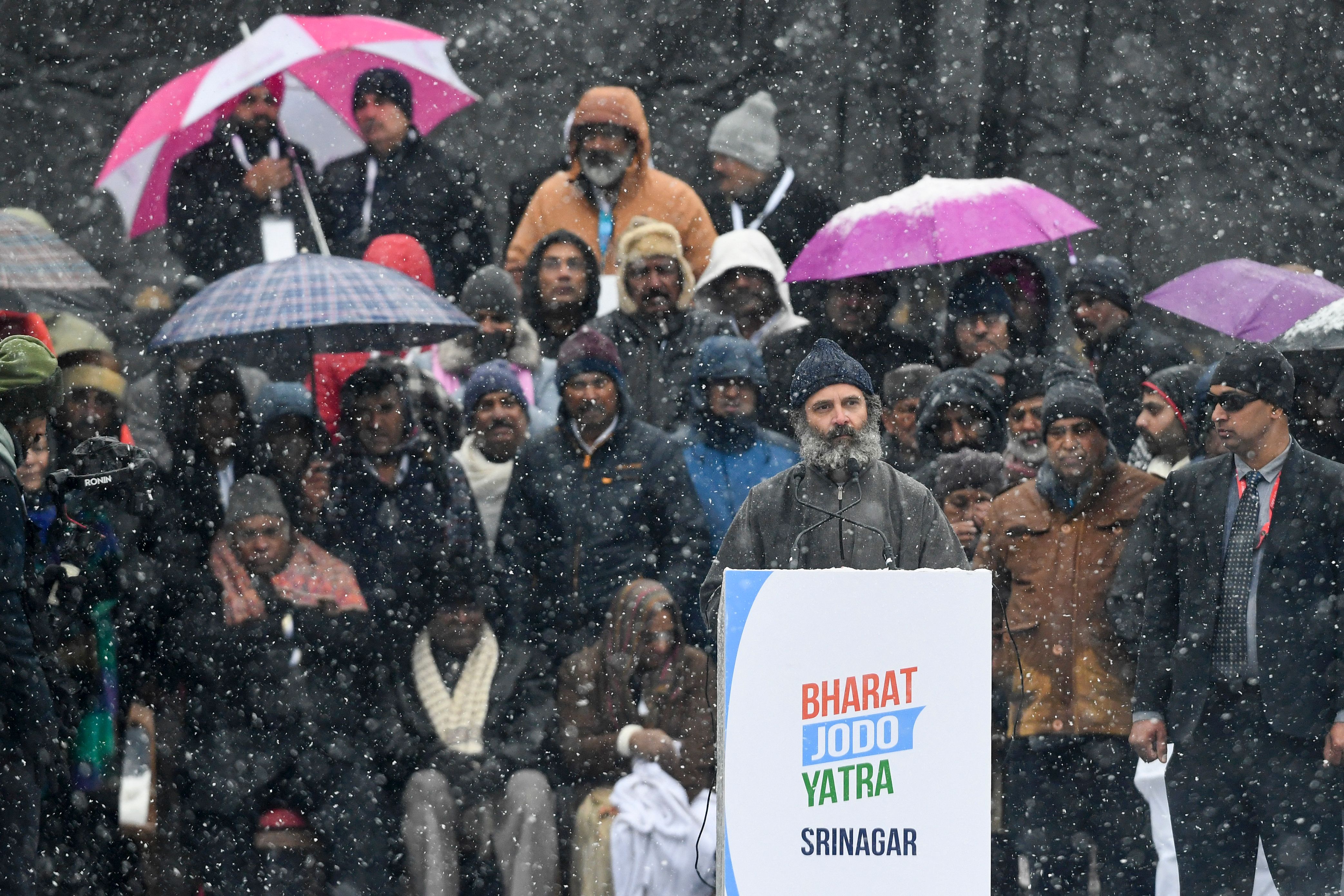
“So even after he’s disqualified and he is not allowed to contest the election, if he remains on the street and if he campaigns for the opposition, that I think is going to send a very strong signal to the people that it’s not for the post of prime ministership that he has been toiling for so long,” he says.
He suggests Gandhi should build on the “moral authority” gained through his 136-day-long journey Bharat Jodo Yatra (Unite India March) and try to bring the opposition together in a manner similar to what his mother Sonia Gandhi did in 2004.
Sonia Gandhi, often jeered by the BJP for her Italian heritage, had made a political statement by relinquishing the post of prime minister after it had won national elections that year.
“It only strengthened the Congress Party,” he says. “Similarly, this is an opportunity for Rahul Gandhi to show that he doesn’t care. He remains politically active because he is concerned for democracy, he is concerned for survival of India as we know.”
Join our commenting forum
Join thought-provoking conversations, follow other Independent readers and see their replies
Comments


Bookmark popover
Removed from bookmarks